Revisiting the Frisch–Peierls Memorandum
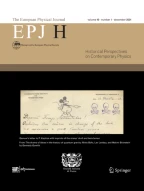
This paper analyzes the physics of the famous 1940 Frisch–Peierls memorandum, which examined the possibility of creating a nuclear weapon utilizing a fast-neutron chain reaction with uranium-235. While Frisch and Peierls’ estimate of the critical mass was far too low, their analysis was fundamentally sound. I also survey the role of the memorandum in the overall history of wartime nuclear developments, and its prescient predictions of aspects of the Cold War.
This is a preview of subscription content, log in via an institution to check access.
Access this article
Subscribe and save
Springer+ Basic
€32.70 /Month
- Get 10 units per month
- Download Article/Chapter or eBook
- 1 Unit = 1 Article or 1 Chapter
- Cancel anytime
Buy Now
Price includes VAT (France)
Instant access to the full article PDF.
Rent this article via DeepDyve
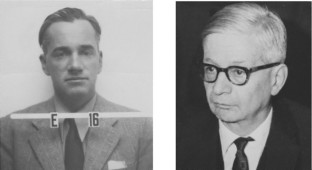
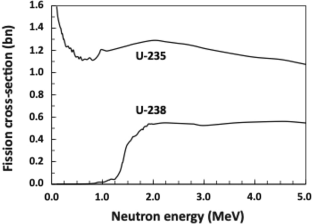
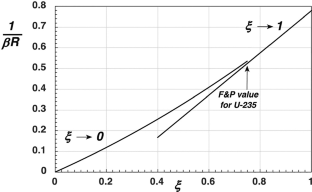
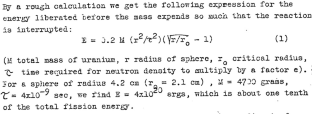
Similar content being viewed by others
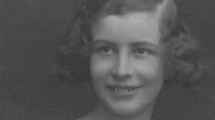
Gertrude Scharff-Goldhaber, 1911–1998: Nuclear Physicist Against the Odds
Article 05 July 2016
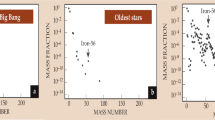
Franz Käppeler and evolutions in nuclear physics
Article 20 November 2023

Chapter © 2013
References
- Anderson, Herbert L., E. T. Booth, J. R. Dunning, E. Fermi, G. N. Glasoe and F. G. Slack. 1939a. The Fission of Uranium. Phys. Rev.55(5) 511-512 ArticleADSGoogle Scholar
- Anderson, Herbert L., E. Fermi and H. B. Hanstein. 1939b. Production of Neutrons in Uranium Bombarded by Neutrons. Phys. Rev.55: 797-798 ArticleADSGoogle Scholar
- Arnold, L. 2003. The History of Nuclear Weapons: The Frisch–Peierls Memorandum on the Possible Construction of Atomic Bombs of February 1940. Cold War History3: 111-126 ArticleGoogle Scholar
- Bernstein, Jeremy. 2011. A memorandum that changed the world. Am. J. Phys.79(5): 440-446 ArticleADSGoogle Scholar
- Bethe, H. 1937. Nuclear Physics B. Nuclear Dynamics, Theoretical. Rev. Mod. Phys.9(2): 69-244 ArticleADSGoogle Scholar
- Bohr, Niels. 1939. Resonance in Uranium and Thorium Disintegration and the Phenomenon of Nuclear Fission. Phys. Rev.55 (4): 418-419 ArticleADSMathSciNetGoogle Scholar
- Bohr, Niels and J. A. Wheeler. 1939. The Mechanism of Nuclear Fission. Phys. Rev.56 (5): 426-450 ArticleADSGoogle Scholar
- Chadwick, Mark. 2021. Nuclear Science for the Manhattan Project and Comparison to Today’s ENDF Data. Nucl. Technol.207(S1): S24-S61 ArticleADSGoogle Scholar
- Clark, Ronald W. 1965. Tizard. Methuen, London
- Dalitz, R. H. and Sir Rudolf Peierls. 1997. Selected Scientific Papers of Sir Rudolf Peierls With Commentary. World Scientific, Singapore BookGoogle Scholar
- Frisch, O. R. 1979. What Little I Remember. Cambridge University Press, Cambridge. Google Scholar
- Glasstone, S. and P. J. Dolan. 1977. The Effects of Nuclear Weapons. United States Department of Defense and Energy Research and Development Agency, Washington BookGoogle Scholar
- Goldstein, L., A. Rogozinski and R. J. Walen. 1939. The Scattering by Uranium Nuclei of Fast Neutrons and the Possible Neutron Emission Resulting from Fission. Nat.144(3639): 201-202 ArticleADSGoogle Scholar
- Gowing, Margaret. 1964. Britain and Atomic Energy 1939-1945. St. Martin’s Press, London Google Scholar
- Ladenburg, R, M. H. Kanner, H. H. Barschall and C. C. van Voorhis. 1939. Study of Uranium and Thorium Fission Produced by Fast Neutrons of Nearly Homogeneous Energy. Phys. Rev.56 (2): 168-170 ArticleADSGoogle Scholar
- Lestone, J. P., M. D. Rosen and P. Adsley. 2021. Comparison Between Historic Nuclear Explosion Yield Formulas. Nucl. Technol.207(S1): S352-S355 ArticleADSGoogle Scholar
- Nier, A. O., E. T. Booth, J. R. Dunning and A. V. Grosse. 1940. Nuclear Fission of Separated Uranium Isotopes. Phys. Rev. 57 546 ArticleADSGoogle Scholar
- Pearson, J. M. 2023. Comments on the Frisch–Peierls estimate of the critical mass of a uranium fission bomb. Nucl. Technol.: in press. https://doi.org/10.1080/00295450.2023.2274690
- Pearson, J. M. and B. C. Reed 2024. Remarks on the yield of fission bombs. Am. J. Phys.: in press.
- Peierls, R. 1939. Critical Conditions in Neutron Multiplication. Math. Proc. Cambridge Phil. Soc. 35(4): 610-615 ArticleADSMathSciNetGoogle Scholar
- Peierls, R. 1985. Bird of Passage: Recollections of a Physicist. Princeton University Press, Princeton Google Scholar
- Reed, B. C. 2011. Liquid Thermal Diffusion during the Manhattan Project. Phys. Perspect.13: 161-188 ArticleADSGoogle Scholar
- Reed, B. C. 2019. The History and Science of the Manhattan Project, 2nd ed. Springer, Berlin BookGoogle Scholar
- Reed, B. C. 2020. Composite cores and tamper yield: Lesser-known aspects of Manhattan Project fission bombs. Am. J. Phys.88(2): 108-114 ArticleADSGoogle Scholar
- Reed, B. C. 2021a. The Physics of the Manhattan Project. Springer, Cham, Switzerland BookGoogle Scholar
- Reed, B. C. 2021b. An inter-country comparison of nuclear pile development during World War II. Eur. Phys. J. H46: 15 ArticleGoogle Scholar
- Reed, B. C. 2022. Comments on the physics of the Frisch–Peierls Memorandum. Nucl. Technol.208(12): 1890-1893 ArticleADSGoogle Scholar
- Rhodes, R. 1986. The Making of the Atomic Bomb. Touchstone, New York Google Scholar
- Serber, Robert. 1992. The Los Alamos Primer. University of California Press, Berkeley Google Scholar
- Szasz, F. M. 1992. British Scientists and the Manhattan Project: The Los Alamos Years. St. Martin’s Press, New York BookGoogle Scholar
- Szilard, L. and Zinn, W. H. 1939. Instantaneous Emission of Fast Neutrons in the Interaction of Slow Neutrons with Uranium. Phys. Rev.55: 799-800 ArticleADSGoogle Scholar
- Zinn, W. H. and Szilard, L. 1939. Emission of Neutrons by Uranium. Phys. Rev.56: 619-624 ArticleADSGoogle Scholar
Acknowledgements
Over several years I have had the pleasure of discussing the Frisch–Peierls memorandum and its nuances with Jeremy Bernstein, Mark Chadwick, Miriam Hiebert, John Lestone, Mike Pearson, Carey Sublette, and Pete Zimmerman (deceased), and thank them all for their insights, input, and encouragement. I am also grateful to an anonymous reviewer whose suggestions helped to improve this paper.
Author information
Authors and Affiliations
- Department of Physics (Emeritus), Alma College, Alma, MI, 48801, USA B. Cameron Reed
- B. Cameron Reed







